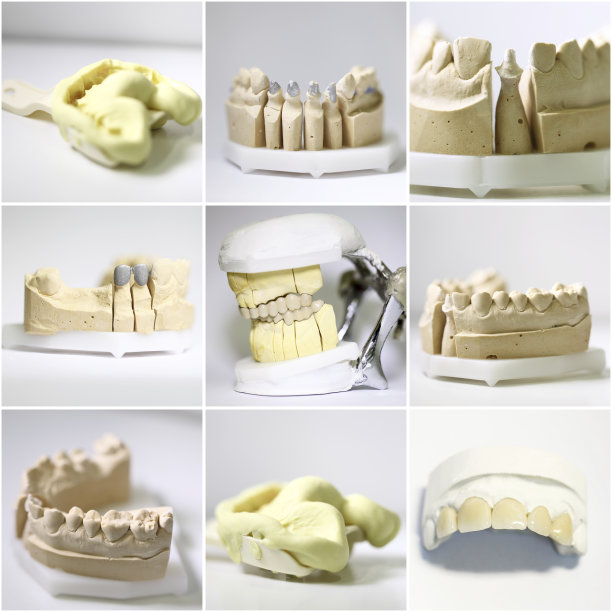Summary: Dental implant treatment has emerged as a revolutionary solution for individuals suffering from tooth loss, offering a multitude of benefits that significantly enhance oral health. This comprehensive guide explores the intricacies of dental implants, detailing their technology, the procedure involved, their advantages over traditional tooth replacement methods, and the essential aftercare required to ensure success. By understanding these aspects, patients can make informed decisions about their dental health and experience a renewed sense of confidence in their smiles.
1. Understanding Dental Implant Technology

Dental implants consist of small titanium posts that are surgically implanted into the jawbone, serving as artificial tooth roots. This innovative technology allows for a permanent and secure foundation for replacement teeth, whether they be crowns, bridges, or dentures. The titanium material is biocompatible, promoting osseointegration, which is the process where bone fuses to the implant, ensuring stability and longevity.
The advancements in dental implant technology have made the procedure less invasive, significantly reducing recovery time. Using computer-assisted designs and 3D imaging, dental professionals can now create tailor-made implants for each patient. This level of personalization enhances the fit and functionality of the implants, ultimately leading to better overall patient satisfaction.
Furthermore, many implants now come with advanced features such as surface treatments that enhance osseointegration. These treatments can include micro-roughened surfaces, hydrophilic properties, and coated materials that encourage faster healing and stronger bone integration. Such innovations revolutionize not just the implants themselves but the entire tooth replacement experience.
2. The Procedure Involved in Implant Placement
The process of getting dental implants typically involves several stages, starting with a thorough consultation and examination. The dental professional assesses the patients oral health, taking X-rays and possibly 3D scans to evaluate bone density and determine if additional procedures, such as bone grafting, are necessary.
Once the foundation is deemed suitable, the surgical phase begins. The titanium post is inserted into the jawbone, a procedure performed under local anesthesia or sedation to ensure comfort. Post-surgery, a healing period is required for osseointegration to occur, which can take several months. During this time, the implant becomes securely anchored in the bone.
After healing, the next step is the placement of the abutment, which connects the implant to the prosthetic tooth. Finally, the custom-made crown or denture is affixed to the abutment, restoring the patient’s smile and function. Each step is carefully executed, ensuring that the final outcome is both aesthetically pleasing and functionally effective.
3. Advantages Over Traditional Tooth Replacement
One of the primary advantages of dental implants is their durability. Unlike dentures or bridges that may require frequent replacements or adjustments, implants are designed to last for many years. With proper care, they can even last a lifetime, making them a cost-effective solution in the long run.
In addition to longevity, dental implants offer superior functionality. They allow individuals to eat a wide variety of foods without the discomfort or inconvenience associated with movable dentures. Implants also enhance speech since they eliminate the possibility of slippage and improve articulation.
From a cosmetic perspective, dental implants provide a natural appearance and feel. They are designed to blend seamlessly with existing teeth, restoring not only the smile but also boosting self-esteem. Many patients report a significant improvement in confidence levels post-implantation, allowing them to smile freely without concerns about noticeable gaps or removable appliances.
4. Essential Aftercare for Longevity
The success of dental implants heavily relies on appropriate aftercare. Patients are advised to maintain excellent oral hygiene, including regular brushing and flossing, to prevent infection and ensure the longevity of the implant. Routine dental check-ups are essential for monitoring the health of the implant and surrounding tissues.
Additionally, patients must be mindful of their lifestyle choices. Avoiding smoking and excessive alcohol consumption is crucial, as these factors can significantly affect the healing process and overall success rates of implants. A balanced diet rich in vitamins and minerals further promotes optimal healing and bone health.
Lastly, any discomfort or unusual symptoms should be addressed promptly with the dental care provider. Early intervention can prevent minor issues from escalating into significant complications, ensuring a smooth postoperative experience and successful long-term results.
Summary:
Dental implant treatment is revolutionizing how individuals approach tooth loss, offering a secure and aesthetically pleasing solution that benefits overall oral health. The technology behind implants, the multi-step procedure, their numerous advantages compared to traditional methods, and the essential aftercare all contribute to the success of this transformative dental treatment.
This article is compiled by Vickong Dental and the content is for reference only
Vickong Dental
Vickong Dental is a large medical group established in Hong Kong in 2008 by professors from well-known medical universities in Guangdong and Hong Kong, as well as medical doctors from key national '985' universities (including Master's supervisors and senior professors). The chain of branches brings together expert dentists with PhDs and Master's degrees from Hong Kong and Mainland China, committed to providing high-quality dental treatment.
"Vickong Dental Practices the University Motto of 'Healing and Serving Society,' with a Stable Operation for Sixteen Years. It Has Been honored with Hong Kong Enterprise Leaders's Choice,' and is a Global Trusted Implant Center for the Nobel Implant System. Recommended by Hong Kong Metro Broadcast and Guangdong Television, it Serves Customers from Over Thirty Countries and Regions, Gaining the Trust and Favor of Citizens from the Guangdong-Hong Kong-Macau Greater Bay Area and Surrounding Cities.

Thousands of customers' unanimous praise
The most recognized and highly recommended dental service by customers in the Guangdong-Hong Kong-Macau Greater Bay Area
We Ensure You Receive Detailed Care and Attention Here
Hong Kong standards, Shenzhen prices, Your Trusted English-speaking dentists

Vickong Dental Medical-Grade Instrument Disinfection Process
Vickong Dental Medical-Grade Instrument Disinfection Process

Vickong Dental Chain: A Warm and Comfortable Environment for Treatment






Appointment Hours

Q&A
Why choose Vickong Dental?
Vickong Dental practices the university motto 「Medicine to Benefit Society」, with each branch bringing together highly qualified dentists with doctoral and master’s degrees from Hong Kong and the Mainland, and has maintained seventeen years of steady operation。Recipient of 「2024 Hong Kong Enterprise Leaders Brand」, 「2025 Hong Kong Enterprise Leaders Brand」, a Nobel Biocare Global Trusted Implant Center, and a brand recommended by Metro Radio Hong Kong and Guangdong TV。
To date, we have served customers from more than thirty countries and regions,earning exceptionally high word-of-mouth recognition and trusted recommendations from residents across the Guangdong-Hong Kong-Macao Greater Bay Area and surrounding cities
We have eight major branches in Zhuhai、Shenzhen,and a consultation and service assurance center in Hong Kong,so you can book a free consultation at any time for any questions,which is very reassuring.
If I do not accept the quotation after the CT scan, will I be charged??
No! As long as the actual treatment has not started, you will not be charged any fees.
Will there be any additional charges during the treatment process?
No, there won’t be any additional charges. Before treatment begins, we will clearly explain the treatment plan and its corresponding fees. Only after the patient agrees and signs the consent form will we proceed with the dental service.
Can I pay in Hong Kong dollars?
Yes. Vickong Dental accepts payment in Hong Kong dollars. The amount will be converted based on the exchange rate of the day, and the applicable rate will be clearly communicated to you in advance.
Can I reschedule my appointment at any time?
Yes. Please contact us via **WeChat** or **WhatsApp** as early as possible, providing your original appointment time and details, along with your preferred new date and time slot for rescheduling.













